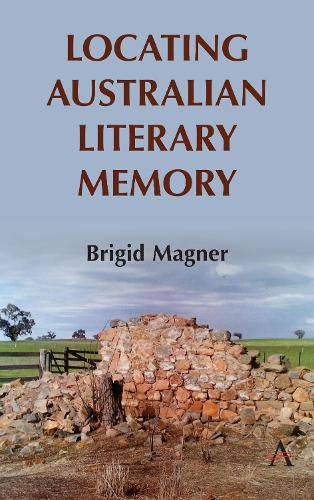Readings Newsletter
Become a Readings Member to make your shopping experience even easier.
Sign in or sign up for free!
You’re not far away from qualifying for FREE standard shipping within Australia
You’ve qualified for FREE standard shipping within Australia
The cart is loading…






An exploration of sites explicitly connected with Australian authors through material forms of communication.
Locating Australian Literary Memory explores the cultural meanings suffusing local literary commemorations. It is orientated around eleven authors - Adam Lindsay Gordon, Joseph Furphy, Henry Handel Richardson, Henry Lawson, A. B. ‘Banjo’ Paterson, Nan Chauncy, Katharine Susannah Prichard, Eleanor Dark, P. L. Travers, Kylie Tennant and David Unaipon - who have all been celebrated through a range of forms including statues, huts, trees, writers’ houses and assorted objects.
Brigid Magner illuminates the social memory residing in these monuments and artefacts, which were largely created as bulwarks against forgetting. Acknowledging the value of literary memorials and the voluntary labour that enables them, she traverses the many contradictions, ironies and eccentricities of authorial commemoration in Australia, arguing for an expanded repertoire of practices to recognise those who have been hitherto excluded.
$9.00 standard shipping within Australia
FREE standard shipping within Australia for orders over $100.00
Express & International shipping calculated at checkout
An exploration of sites explicitly connected with Australian authors through material forms of communication.
Locating Australian Literary Memory explores the cultural meanings suffusing local literary commemorations. It is orientated around eleven authors - Adam Lindsay Gordon, Joseph Furphy, Henry Handel Richardson, Henry Lawson, A. B. ‘Banjo’ Paterson, Nan Chauncy, Katharine Susannah Prichard, Eleanor Dark, P. L. Travers, Kylie Tennant and David Unaipon - who have all been celebrated through a range of forms including statues, huts, trees, writers’ houses and assorted objects.
Brigid Magner illuminates the social memory residing in these monuments and artefacts, which were largely created as bulwarks against forgetting. Acknowledging the value of literary memorials and the voluntary labour that enables them, she traverses the many contradictions, ironies and eccentricities of authorial commemoration in Australia, arguing for an expanded repertoire of practices to recognise those who have been hitherto excluded.